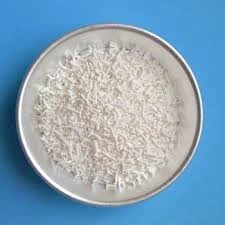
e954 food additive
Understanding E954 The Food Additive
Food additives play a significant role in modern food production and preservation. Among the many food additives used, E954, commonly known as Saccharin, is one of the earliest artificial sweeteners discovered. Its journey from a laboratory curiosity to a popular sugar substitute underscores both its utility and the controversies surrounding its use.
Saccharin was first identified in 1879 by chemist Constantin Fahlberg while working on coal tar derivatives. It became widely used in the early 20th century, particularly during World War I and World War II, when sugar was rationed. Due to its high sweetness—about 300 to 500 times sweeter than sucrose—Saccharin provided an appealing alternative for those looking to reduce sugar intake, particularly diabetics and those concerned with caloric intake.
Understanding E954 The Food Additive
However, the use of E954 has not been without controversy. In the 1970s, Saccharin faced scrutiny after studies linked it to bladder cancer in rats. These findings led to a temporary ban and labeling requirements for products containing Saccharin in some countries. Despite these concerns, extensive research eventually indicated that the risks to humans were negligible, leading regulatory agencies like the U.S. Food and Drug Administration (FDA) to reverse the bans and deem Saccharin safe for consumption.
e954 food additive

Today, E954 is approved for use in many regions, including the European Union and North America. It is often found in various products under labels such as “sweetener,” and continues to be a popular choice for those looking to maintain a sweet taste without the caloric burden. The growing population of health-conscious consumers contributes to its sustained demand.
Moreover, the food industry remains innovative, combining E954 with other sweeteners to create balanced flavor profiles that cater to diverse consumer preferences. The trend of using multiple sweeteners in products has been beneficial, masking any undesirable aftertaste and improving overall palatability.
Yet, even with its safety approval, the long-term health impacts of consuming artificial sweeteners like E954 are still under investigation. Some studies suggest that frequent consumption may alter gut microbiota or metabolic responses, while others argue that such artificial substances may induce cravings for sweetness, potentially leading to overconsumption of sugars in other forms.
In conclusion, E954, or Saccharin, represents a significant chapter in the story of food additives. As a low-calorie sweetener, it provides a useful option for those seeking to reduce sugar intake. However, ongoing research and public discourse surrounding artificial sweeteners highlight the complexity of their health implications. For consumers, staying informed is essential, allowing for well-balanced dietary choices in an era where health and wellness continue to take priority.
-
Pure Sodium Dichloroisocyanurate Dihydrate | Powerful DisinfectantNewsAug.29,2025
-
Industrial Chemicals: Quality & Purity for Every IndustryNewsAug.28,2025
-
Nitrile Rubber Honoring Strict Production StandardsNewsAug.22,2025
-
Aspartame Ingredients Honoring Food Safety ValuesNewsAug.22,2025
-
Fertilizer for Balanced Plant NutritionNewsAug.22,2025
-
Cyanide Gold Processing with High Purity AdditivesNewsAug.22,2025
-
Formic Acid in Textile Dyeing ApplicationsNewsAug.22,2025
Hebei Tenger Chemical Technology Co., Ltd. focuses on the chemical industry and is committed to the export service of chemical raw materials.
-

view more DiethanolisopropanolamineIn the ever-growing field of chemical solutions, diethanolisopropanolamine (DEIPA) stands out as a versatile and important compound. Due to its unique chemical structure and properties, DEIPA is of interest to various industries including construction, personal care, and agriculture. -

view more TriisopropanolamineTriisopropanolamine (TIPA) alkanol amine substance, is a kind of alcohol amine compound with amino and alcohol hydroxyl, and because of its molecules contains both amino and hydroxyl. -

view more Tetramethyl Thiuram DisulfideTetramethyl thiuram disulfide, also known as TMTD, is a white to light-yellow powder with a distinct sulfur-like odor. It is soluble in organic solvents such as benzene, acetone, and ethyl acetate, making it highly versatile for use in different formulations. TMTD is known for its excellent vulcanization acceleration properties, which makes it a key ingredient in the production of rubber products. Additionally, it acts as an effective fungicide and bactericide, making it valuable in agricultural applications. Its high purity and stability ensure consistent performance, making it a preferred choice for manufacturers across various industries.





